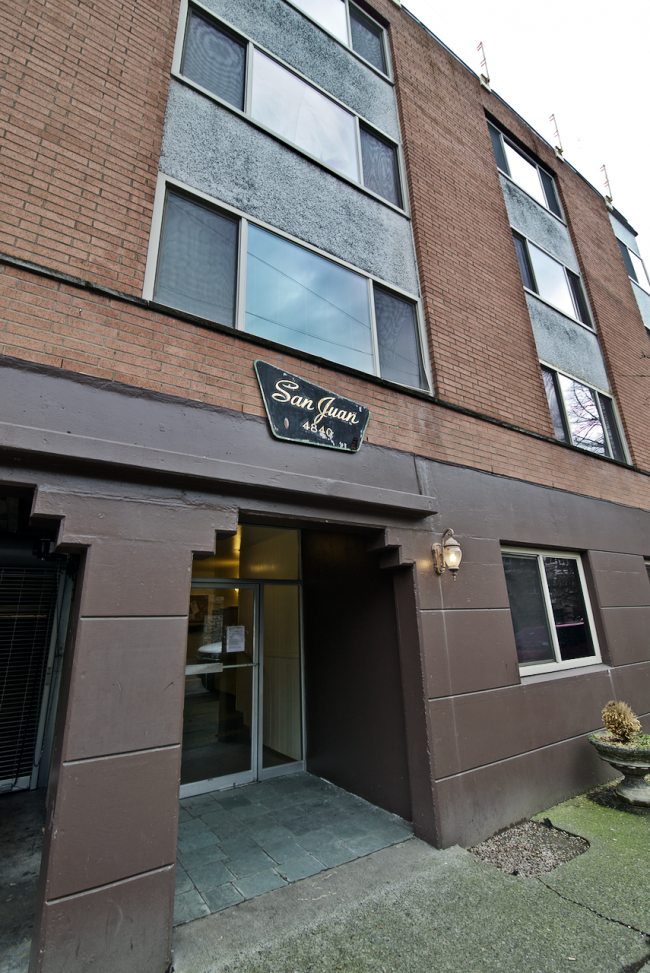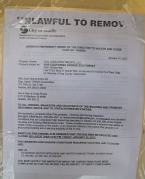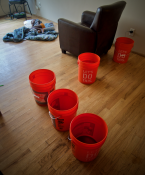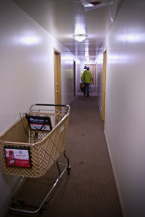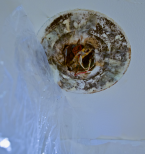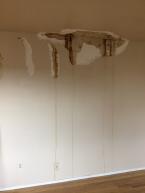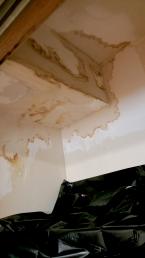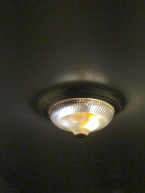UPDATE: San Juan Apartments closed by City of Seattle in emergency order; More units added to inspection list
San Juan Apartments closed in Emergency Order from the City of Seattle.
Fri, 01/20/2017
Update 1-23-17
As the West Seattle Herald reported first on Jan. 20, The San Juan Apartments were the subject of a closure and vacation order by the City of Seattle Department of Bulidings and Construction. The original notice posted on the front door called for the entire building but only one unit was ordered vacated at that time, unit 41. Two more units have been added to the inspection list since then and the Herald, upon visiting drew the attention of further potential health hazards and building faults to the City. The spokesperson Bryan Stevens said they would attempt to gain access to to the second floor and other areas. He also issued a statement regarding the situation and what tenants can do in the event relocation is required.
Steven's statement:
"Last week our code compliance inspector responded to a complaint from a tenant related to water damage in their unit. After inspection, it became clear that significant leaks were coming from the flat roof above. That specific unit is no longer habitable or safe to occupy, so our inspector notified the property manager informing them we’ve issued an Emergency Order to Close and Vacate. The tenants had already moved out most of their belongings before inspection, but this formal notice from SDCI now allows the tenant access to financial relocation assistance from the property owner. A low-income household will receive $4133; if not low-income they will receive the equivalent of two months’ rent for relocation assistance.
Today, we’ve received additional complaints from two other tenants in the top floor and are scheduling inspections. At this point in time, the damage appears to be limited to portions of the top floor. We have not ordered the entire building to be vacated, but could see additional top floor units deemed unsafe to occupy depending on the scope of the damage. The property owner has scheduled a roofing company to begin making repairs next week."
Original Post 1-20-17
The City of Seattle issued an Emergency Order to "Vacate and Close" the San Juan Apartments at 4840 California Ave. SW due to hazardous conditions effective immediately. The 28 unit, three story building, fully rented must be evacuated. No word has been issued on what will happen to the residents or how long the work will take.
It is the result of the owners initial refusal to repair extensive roof leaks. Work started after notice was posted on Wednesday. The registered agent for the building that rents for between $1200 and close to $1400 per month (with parking) is OM& R Corporation at 701 Pike Street Ste. 1700 Seattle, 98101.
According to a source that asked not to be identified this order was initiated because the City had declared a top floor apartment uninhabitable because of black mold a few months ago."
The order states, "We received a complaint about this property. Housing and Zoning Inspector Rachel Freeman 206-684-4527 or rachel.freeman@seattle.gov, investigated and identified conditions that are considered high hazard as described in Section 22.306.260 of the Seattle Housing and Building Maintenance Code. These conditions represent a threat to the safety or health of the occupants or the public, or an imminent hazard to the extent that people in or around the building are in serious jeopardy of life or limb.
Based on this finding, it is ordered that the building be vacated and closed no later than 12:00 PM, Friday January 20, 2017.
The order cites "Extensive Water Intrusion and water damage from leaking roof."
Residents say the problem is not confined to one unit and that the entire building is suffering from the leaks and mold that are now apparent in common areas and inside apartments. Black mold can be seen in corners and is extensive. Light fixtures have rusted and corroded from the apparent lack of maintenance. One of the residents said, "This is a case of deferred maintenance gone over a decade. They know about the leaks. There's evidence of leak damage. My light fixture fell down. It was corroded so badly that it just fell out. You can't do that in a six month period or a year. It takes at least a decade for a light fixture to turn to powder. " Another resident pointed out that garbage is commonly found in the hallways, that garbage is overflowing in the parking area. They noted that the second floor has an overpowering odor of animal waste. The landlords will be asked by some residents to pay for some of the residents to move but there's no ordinance that compels this. "It's hard to believe there's a Twilight Zone slum within an extremely desirable high end neighborhood, which is unheard of. It's a black hole."
The Herald has calls in to Rachel Freeman the Inspector and will update this story.
Under Washington State Law the landlord must
"(2) Maintain the structural components including, but not limited to, the roofs, floors, walls, chimneys, fireplaces, foundations, and all other structural components, in reasonably good repair so as to be usable;"
in the notes the State says," "The legislature finds that residents of the state face preventable exposures to mold in their homes, apartments, and schools. Exposure to mold, and the toxins they produce, have been found to have adverse health effects, including loss of memory and impairment of the ability to think coherently and function in a job, and may cause fatigue, nausea, and headaches."
According to the Tenants Union of Washington State
"Other than a requirement to provide written information (RCW 59.18.060), there are no state laws governing landlords’ responsibilities regarding mold removal. State law does give residential tenants the right to vacate their units and move if the landlord is not making necessary repairs. It will depend on whether the landlord attempts to fix the problem causing the mold to grow. The mold itself may not be cause enough to break the lease, but if the landlord fails to fix the leaky pipe causing the moisture that created the mold growth, then the tenant can follow the repair process to eventually break the lease. Thorough documentation is vital if you’d like to use this legal remedy, and there are some risks associated with this course of action."
The City of Seattle based on the Housing and Zoning Code Compliance ordinances says: "Either at the request of the owner or shortly after the compliance period has expired, Seattle DCI will reinspect the property to determine whether the violation has been corrected. If more than two inspector visits are required before compliance is reached, an inspection charge is imposed for the third and each additional inspection.
If the violation has been corrected, a certificate of compliance will be mailed to the owner, who should file it with King County to clear title records. If a violation is not corrected, Seattle DCI will refer the case to the City’s Law Department for legal action. Various civil and criminal penalties, including substantial fines or jail sentences, may be imposed in Municipal Court for failure to correct code violations.
Information on specific penalties for code violations is available from Seattle DCI Code Compliance staff at (206) 615-0808."

